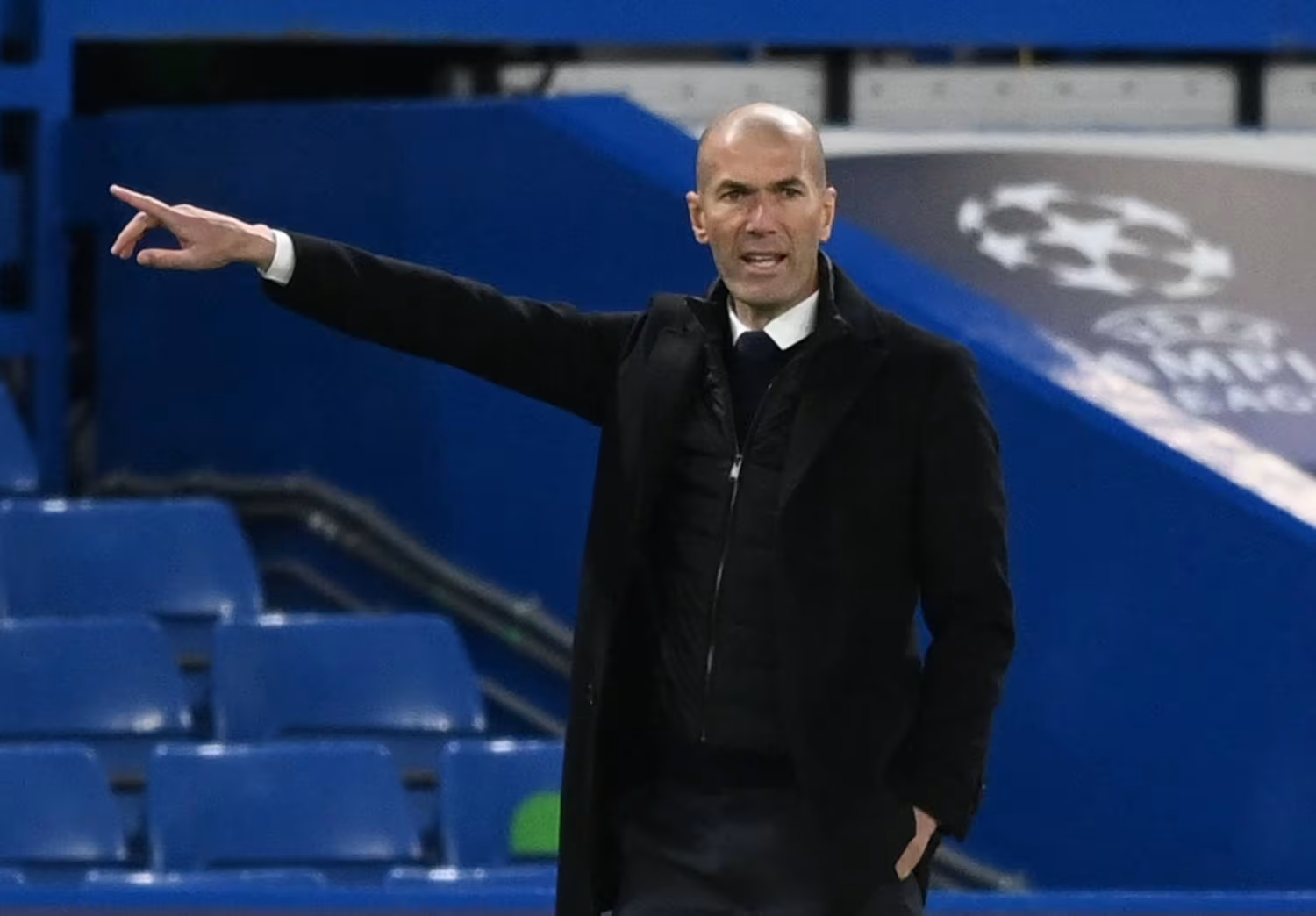Subtotal $0.00
Zidane’s ambition to coach France
Public statement and what it signals
Zinedine Zidane, now 53, confirmed on Sunday that he would one day like to coach the France national team. He stopped short of saying whether he would pursue the role if it became available before Didier Deschamps steps down. This admission instantly reframes the narrative around France’s next era. It places Zidane coaching France back in the spotlight and keeps the debate alive among fans, pundits, and the French federation. The simple phrase, “Zidane coaching France,” carries weight because of his trophy-laden track record and the aura of a coach who has guided big teams to European glory. Such public openness, even without offers on the table, can ripple through federation discussions and influence conversations about transition planning.
In evaluating this moment, it is essential to note the context in which Zidane speaks. The Japan Times highlighted that Zidane is widely considered the favorite to take over after Deschamps, should the timing line up with his ambitions and the federation’s timing. The public statement arrives amid a climate of intense scrutiny about leadership at the top of French football and how best to ensure continuity on the world stage. As a result, Zidane coaching France moves from rumor to a credible possibility in the minds of many observers, even if no formal talks have been disclosed. For fans eager to see a seamless transition, the comments add fuel to a longstanding dialogue about who should steer France toward its next major tournament.
For readers seeking further context, references to credible outlets note the ongoing speculation without confirming an imminent appointment. The Japan Times article frames Zidane’s candidacy as high-profile due to his stature in world football and his prior success as a coach, while also acknowledging uncertainty about official conversations with the federation. This distinction matters because a national team appointment must balance public interest with a formal, process-driven decision. In that sense, Zidane coaching France remains a possibility rather than a promise, a distinction that keeps the door open while leaving substantive questions unanswered. The Japan Times.
Why the France job appeals
The France job is uniquely attractive because the national team consistently sits at the center of football gravity. France’s talent pool is deep, their expectations are relentlessly high, and the federation faces the task of sustaining performance across generations. Zidane’s prior success as a club coach demonstrates his capacity to manage star players, build cohesive units, and deliver under intense scrutiny. Those traits mesh well with the demands of coaching France, where tactical flexibility, leadership presence, and the ability to navigate media pressure are prized. This confluence helps explain why the prospect of Zidane coaching France resonates so strongly with supporters who crave a bold strategic direction and a clear plan for the post-Deschamps era. For those following the broader landscape, Zidane coaching France represents more than a personal ambition; it signals a potential shift in how France positions itself in the global game.
Timeline for succession after Deschamps
Possible timing and milestones
Timelines for succession after Deschamps remain a topic of active discussion. While no official timetable has been announced, several factors shape when a decision could be made: Deschamps’ own plan, the federation’s readiness, and the availability of a candidate like Zidane who can align with the team’s immediate needs and long-term vision. If Deschamps departs after next year’s World Cup, the federation would need to move quickly to identify a fit who can maintain continuity while injecting fresh energy. A transition window spanning the months after a major tournament could become a practical path for announcing a successor. In this environment, Zidane coaching France would be the culmination of a process that weighs continuity against renewal, performance metrics, and leadership dynamics within the national program.
As observers map potential milestones, credible outlets stress that any decision will hinge on formal discussions within the federation rather than public declarations alone. The likelihood of a seamless handover increases if a credible candidate is identified early, enabling a structured approach to technical leadership, player integration, and staff continuity. The public conversation around Zidane coaching France fuels speculation, but the path to appointment remains tethered to dialogue and an agreement on timing that suits the federation’s strategic plan. This careful balance between aspiration and practicality will define the timeline in the weeks and months ahead. BBC Sport.
What would trigger a move
Several triggers could accelerate or slow down a decision about succession. The most obvious is a clear signal from Deschamps about his future and willingness to step aside at a convenient juncture. Another trigger could be a demonstrated need for a new coaching philosophy at key tournaments, paired with Zidane’s availability and interest. The federation would also weigh external factors such as the development path of emerging talents, the alignment of tactical ideology with the player pool, and the capacity to manage a high-pressure national program. Zidane coaching France would be most credible if it aligns with a transparent succession plan that satisfies players, staff, and fans while preserving competitive momentum on the world stage. For more on global coaching transitions, see dynamic coverage from national and international outlets. The Guardian.
Deschamps succession and national team future
What Deschamps has built
Deschamps has been central to France’s recent identity, steering the team through periods of high expectations and fierce competition. His leadership style, tactical flexibility, and ability to unify a talent-rich squad have been defining. As discussions about succession begin, the federation must assess how to preserve the positive trajectory while introducing fresh ideas that can adapt to evolving opponents. Zidane coaching France would represent a natural evolution rather than a disruptive break, provided the transition respects the gains made under Deschamps and maintains alignment with the overarching philosophy that has guided France to major tournaments.
Transition planning and federation role
Transition planning requires clear governance and a structured process. The federation would need to articulate criteria for the next head coach, set expectations for player development, and outline the integration of staff across the technical area. A well-managed handover minimizes disruption to the squad and ensures continuity in scouting, youth development, and tactical preparation. While Zidane coaching France is a compelling narrative, the federation must balance public interest with rigorous assessment, ensuring that any move strengthens the national program in the medium and long term. Observers will watch closely how the federation communicates timelines, criteria, and opportunities for candidates to engage with players and staff. FIFA.
Public reaction and speculation
Fan and pundit reaction
Public reaction to Zidane coaching France is a blend of enthusiasm and caution. Supporters admire his trophy cabinet, his ability to galvanize squads, and his status as a global football icon. Critics, meanwhile, stress the need for a transparent process and a plan that translates charisma into consistent results for the national team. The immediate media cycle amplifies every comment, turning a simple expression of interest into days of debate about systems, personnel, and timing. In this climate, Zidane coaching France becomes not just a personal choice but a lens through which audiences evaluate the federation’s capacity to deliver a durable and effective leadership solution.
Federation balance between public interest and process
The federation faces a delicate balancing act. Public interest is high, and the spotlight is intense. Yet the process must remain credible, transparent, and anchored in football expertise. Officials are tasked with communicating milestones, managing expectations, and ensuring that any potential appointment aligns with long-term strategic goals. Zidane coaching France, if it comes to pass, should reflect a well-structured plan rather than a reaction to speculation. As conversations continue, stakeholders will assess how the federation handles inquiries, communicates timelines, and demonstrates a sustainable vision for France’s next chapter on the world stage. For ongoing coverage of national team leadership, see coverage from major outlets such as UEFA and The New York Times.
Overall, Zidane coaching France is more than a rumor; it is a test of how a national federation navigates leadership transitions while preserving competitive momentum. The next steps will reveal whether this ambition translates into a formal pathway or remains a potent talking point for fans and analysts alike. As the world watches, the question remains: can the light that shines on Zidane coaching France illuminate a sustainable future for the French national team?
















